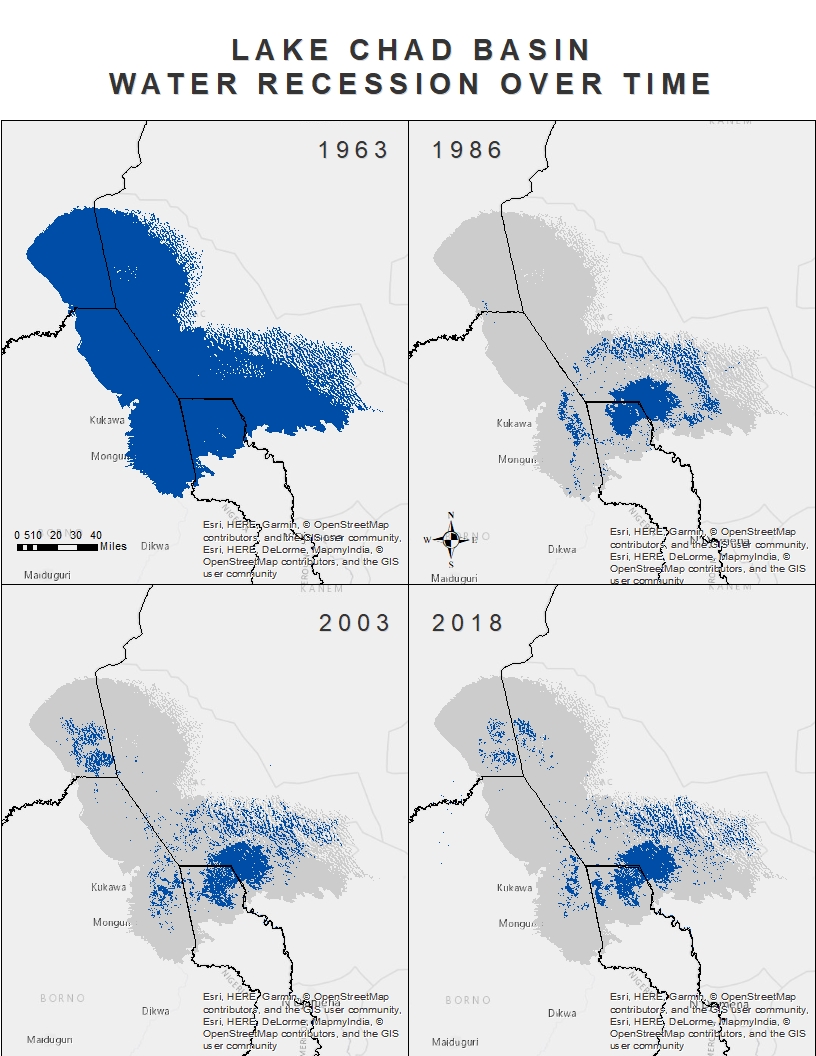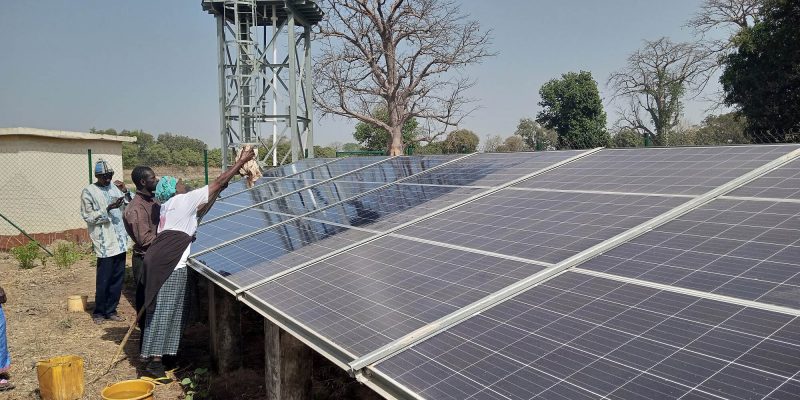Community Water Management
When confronting the topic of climate change, an approach typically suggested to improve water access at the local scale is Community Water Management (CWM). CWM involves the provision of funding and technology from an external actor to sustain a locally operated and regulated water system (Harvey & Reed 2006). For communities where financial security is a restricting factor, this strategy presents an appealing solution to water challenges and potential insecurity from environmental change. To consider the true effectiveness and sustainability of CWM, I present the case study of Lake Chad.
The Case of Lake Chad
Lake Chad, alike most inland water bodies, is a vital source of freshwater to the population by which it is surrounded. Beyond drinking water applications, the lake is a fundamental contributor to agricultural and fishery productivity (FAO 2019). While the importance of the lake continues to heighten, unsustainable water extraction and rapid environmental change are steadily depleting the contents of this remarkable waterbody. Bear in mind, the implications of climate change and ineffective water management lead to a shocking 90% decline in the surface area of Lake Chad across merely six decades (FAO).
Fig 1. Lake Chad Water Decline (Sigelmann 2019)
The FAO project of 2018, in partnership with ENI, was deemed a sustainable intervention strategy to elevate water accessibility in the Lake Chad region. They used three stages to tackle water security: researching appropriate sites for boreholes, constructing solar-powered wells, and establishing locally managed water committees to sustain the water systems. Holistically, the strategy not only increased community resilience towards worsening climate conditions, it also benefited food production, gender equality, and accessibility to improved water sources.
Fig 2. Solar powered borehole system implemented by FAO (Afrik21 2022)
Power to the community, but at what cost?
The establishment of local water committees aims to allocate the power to the community, with the anticipated benefits of collective decision making and an increased sense of responsibility. While conceptually ideal, these committees have proven to worsen social inequalities in certain cases, with gender and power imbalances being exacerbated by the exclusion of marginalised community members from decisions (Shields et al. 2021). Beyond social dynamics, a question that might spring to mind is what happens to the systems in the event of failure? Although technologically ideal, the solar-powered well systems are founded on Western technology with specific operation and maintenance requirements. To provide power to the community, the model inherently provides the community with O/M responsibility as well. For situations where the financial and physical capacity to repair systems is limited, the lasting community approval of CWM accordingly suffers (Hope 2015).
It is vital to highlight that CWM strategies, such as that of Lake Chad, drastically benefited the status of water security. Yet to label these approaches as sustainable can be deceiving. For CWM approaches to retain lasting sustainability, the involvement of communities should not be constrained to the management stage of the project. Foreign aid providers should incorporate communities in all stages of the project, whether it be planning, construction, or maintenance. The absence of those dependent on the system from its design is already elevating its susceptibility to both contestation and failure (Carter et al. 2007). As emphasised by Euphresia Luseka in her discussion of the decolonization of the WASH sector, foreign involvement in water management is largely characterised by an absence of knowledge, editorial influence, or input from African researchers (2020).



No comments:
Post a Comment